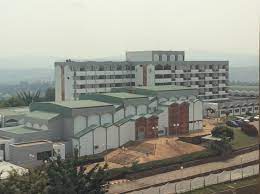
The Parliament of Rwanda will host the 145th Assembly of the Inter-Parliamentary Union (IPU) and its related meetings in Kigali from 11 to 15 October. More than 1000 delegates, including some 60 Speakers and Deputy Speakers of Parliaments, are expected to attend in person.
The overall theme of the Assembly is Gender equality and gender-sensitive parliaments as drivers of change for a more resilient and peaceful world. The IPU will facilitate exchanges on good practices to make parliaments more gender-sensitive as well as encouraging parliaments to pledge transformative action.
Rwanda leads the way when it comes to gender equality in parliament. In 2008, the Rwanda Chamber of Deputies was the first elected national parliament with more women than men. With the proportion of MPs who are women standing at 61.25% today, well above the current global average of 26.4%, Rwanda has been at the top of the IPU’s monthly ranking of women in national parliaments for years.
Rwanda also has a relatively young parliament, with half of its deputies under 45 years old, well above the global average of 29.85%, also tracked by the IPU.
At its Assemblies and meetings, the IPU continues to push for gender parity and youth participation, using incentives but also sanctions to encourage inclusive parliamentary delegations. The results are visible. Today, over 35% of MPs who attend the IPU Assembly are women, compared with an average of 7% in 1978. Around 25% of the participating MPs are under the age of 45.
Some 120 parliaments, including high-level delegations from both the Russian Federation and Ukraine, are expected to attend. The IPU Task Force for the peaceful resolution of the war in Ukraine will meet to follow up on its initial mission to Kyiv and Moscow. The Task Force will report to the full membership on the outcome of its mission and the steps ahead.
The objective of the Task Force – led by MP Dr. Ali Al Nuaimi of the United Arab Emirates and composed of eight prominent parliamentarians, is to explore possible parliamentary solutions to contribute to an end to the war in Ukraine. Its efforts aim to complement on- going peace efforts at the governmental and UN level.
The Assembly will also consider what parliamentary action to take on international migration and how to stop human-trafficking and human rights abuses, including those that are state-sponsored.
Other issues under consideration include environmental degradation and its effects on the proliferation of terrorism; the impact of war and atrocity on civilian populations; war and climate change as triggers of global food insecurity; and the situation of the human rights of parliamentarians.
